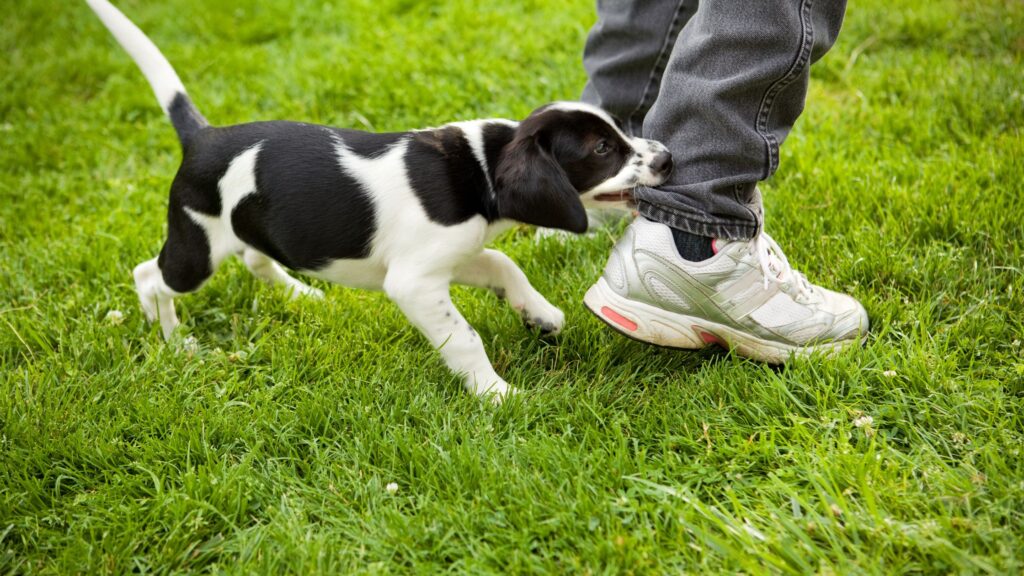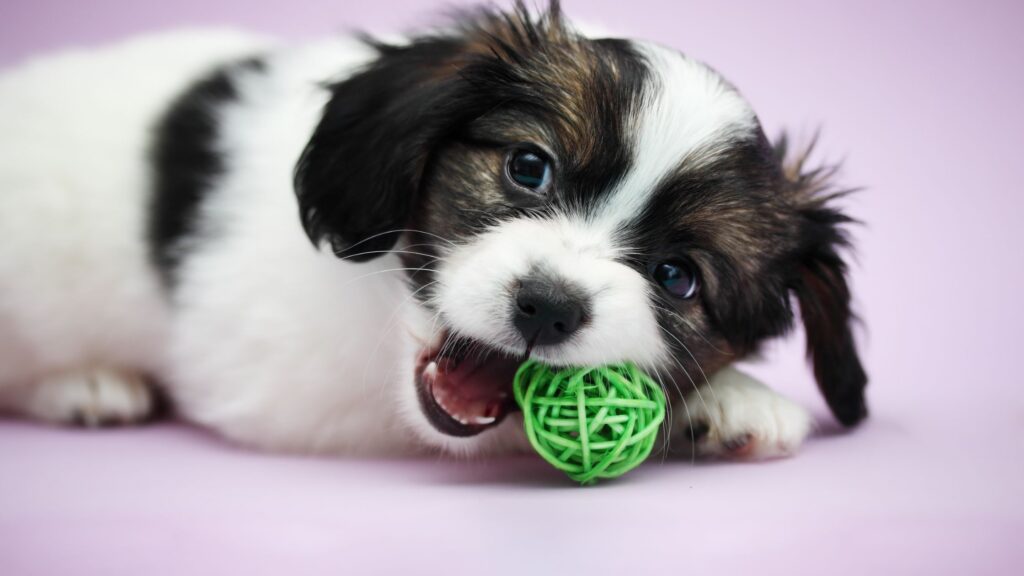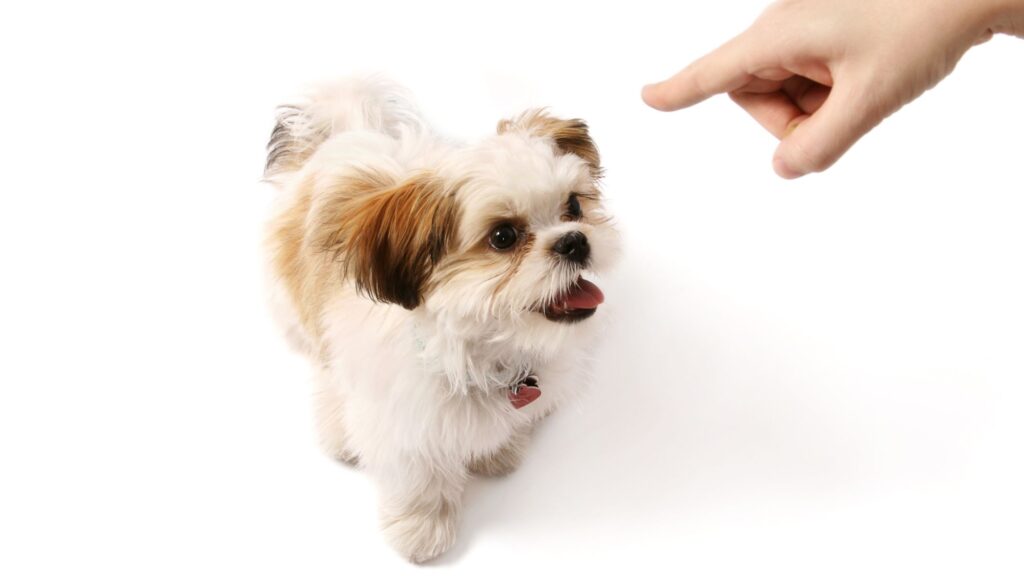Puppy biting can be frustrating for any new dog parent, but it’s a completely natural behavior. Puppies explore the world with their mouths and biting is part of how they learn and play. However, if left unchecked, those sharp little teeth can turn into a big problem as your puppy grows. Let’s go over some effective strategies to help stop your puppy from biting, while keeping the process gentle and positive for your growing pup.
Why Do Puppies Bite?
Before we dive into the “how” of stopping biting, it’s important to understand the “why.” Puppies bite for several reasons:
- Teething: Puppies begin teething around 3 to 6 months of age, and biting helps soothe their sore gums.
- Play Behavior: Biting is a part of how puppies interact with their littermates, and sometimes they don’t know when it’s too hard.
- Exploration: Puppies experience the world by chewing and biting to learn about new textures and objects.
Now that we know why puppies bite, let’s tackle how to stop it in a way that encourages your pup to learn without being too harsh.
1. Teach Bite Inhibition Early
Bite inhibition is when a dog learns to control the force of its bite. Puppies naturally start to develop this skill when playing with their siblings, but you can reinforce it at home. Here’s how:
- React to the bite: When your puppy bites too hard during play, let out a high-pitched “ouch” sound, mimicking the reaction of another puppy. This startles them, signaling that they’ve gone too far. After the yelp, stop play for a few moments so they understand the connection.
- Resume gentle play: Once your puppy has calmed down, resume playing but be mindful of any hard biting. Repeat the “ouch” and pause method whenever necessary.
This technique helps your puppy understand that gentle mouthing is okay, but hard biting stops the fun. Over time, your puppy will learn to be more careful with their teeth.
2. Provide Plenty of Chew Toys
Puppies bite to relieve teething discomfort, so it’s crucial to give them a variety of safe, durable chew toys. Rotating toys will keep things interesting for your puppy and help them focus on the right objects for biting. Look for toys made specifically for teething puppies, like rubber bones or rope toys.
When your puppy starts biting hands, furniture, or anything they shouldn’t, redirect them to one of their toys. This reinforces what’s acceptable for chewing and helps protect your home in the process.
3. Teach Basic Commands Like “Leave It”
Teaching commands like “leave it” or “drop it” can work wonders for redirecting your puppy’s attention from biting. Start with simple training sessions, using treats and positive reinforcement, to teach your pup when to stop certain behaviors. Once they’ve mastered the command, use it when they start biting inappropriately. For instance, when your puppy goes to bite your hand, say “leave it” and reward them when they listen.
Training builds good communication between you and your dog, creating an obedient and happy pup in the long run.
4. Use Positive Reinforcement Over Punishment
Punishing your puppy for biting—by hitting, yelling, or using aversive methods—can backfire. This may cause fear or even aggression in your dog. Instead, focus on positive reinforcement. Praise and reward your puppy when they bite the right things (like their toys) and stop biting when asked. Puppies learn more effectively when they’re shown what to do, rather than just being told what not to do.
5. Provide Regular Exercise and Mental Stimulation
A tired puppy is less likely to engage in destructive biting. Make sure your puppy is getting plenty of physical exercise through walks and playtime. Mental stimulation, such as puzzle toys or short training sessions, can also reduce boredom, which often leads to biting.
6. Consistency is Key
Finally, it’s crucial to be consistent. Everyone in your household should be on the same page when it comes to addressing biting behavior. If some people let your puppy bite while others discourage it, the puppy will get confused and it will take longer for the behavior to stop. Be patient—puppies are learning, and it will take time for them to understand what’s expected.
Conclusion: Raising a Well-Behaved Pup
Puppy biting is a normal part of development, but with consistent training and positive reinforcement, your pup will learn to stop biting and grow into a well-behaved adult dog. Be patient and remember that teaching proper behavior now will lead to a lifetime of great companionship.
For more tips on puppy training, check out this resource from the American Kennel Club AKC Puppy Training Tips.








